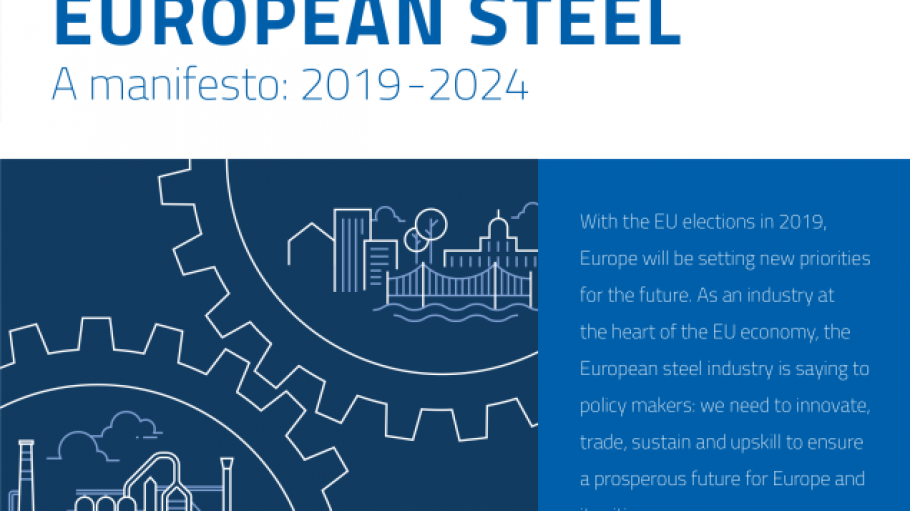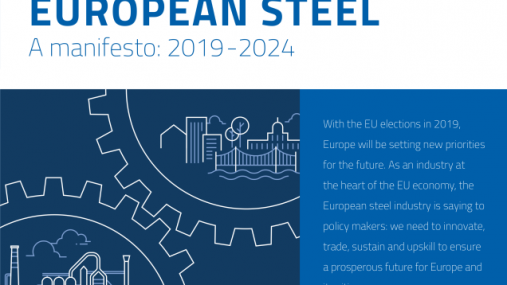

With the EU elections having taken place in May 2019, Europe is setting new priories and direction for the future. As an industry at the heart of the EU economy, the European steel industry is saying to policy makers: we need to innovate, trade, sustain and upskill to ensure a prosperous future for Europe and its citizens.
In the light of slowing demand, both generally and specifically for steel, persistently high global overcapacity of 550 million tonnes – 25% of global production capacity – high and volatile raw material and carbon prices, and surging imports, the European steel industry is facing potential crisis.
This manifesto sets out the footprint and importance of European steel to the EU economy, and explains why we need to make the industry more innovative, skilled and sustainable while also ensuring there is a robust trade policy that defends the sector against the challenges posed by overcapacity and trade surges.

Download this publication or visit associated links
Joint Industry Statement
Brussels, 11 February 2026 - The European Steel Association (EUROFER) has backed a call to action adopted by European companies and industries in Antwerp today, which includes a demand on the EU to take urgent action to bring electricity prices down as a condition for Europe’s industrial drive, competitiveness and economic resilience.
The automotive value chain is of vital importance to the EU steel industry and requires an integrated approach to realising the decarbonisation transition in a pragmatic way.